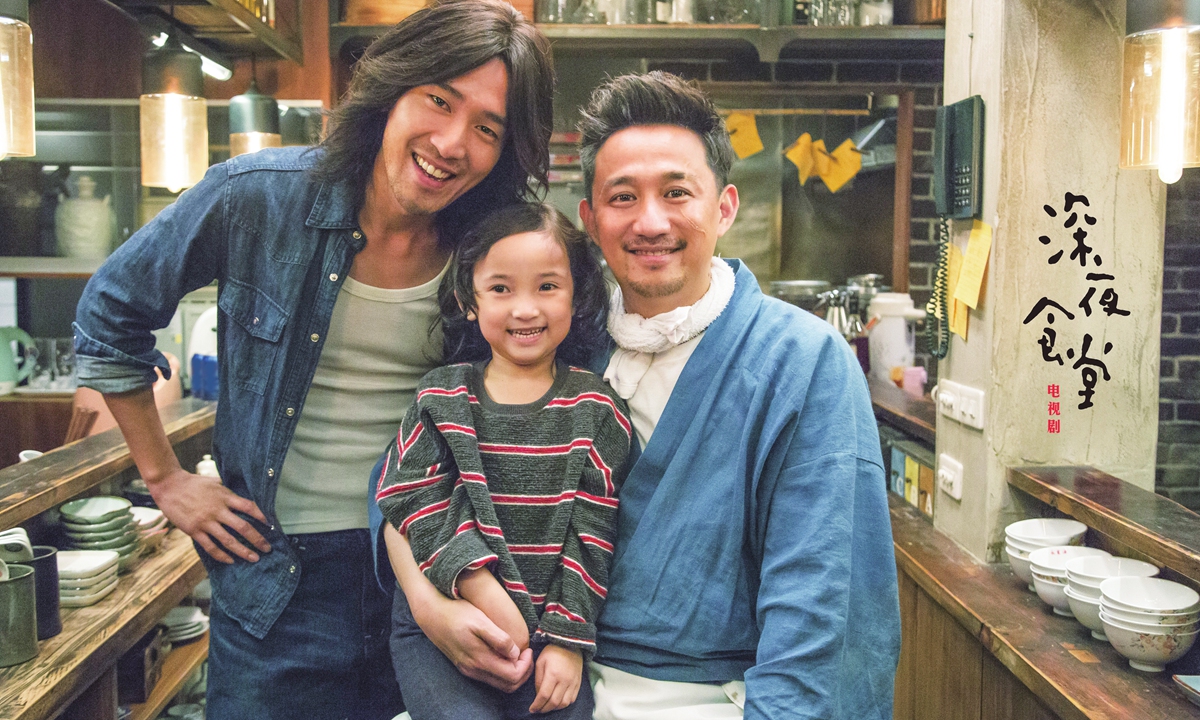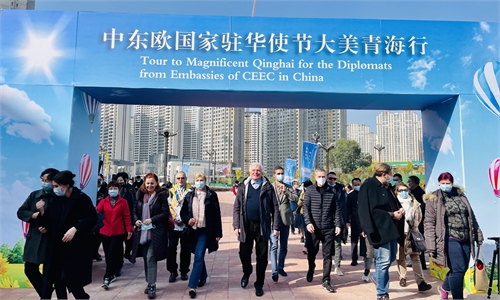ARTS / TV
Japanese dramas in China enhance mutual understanding
Know your neighbor

Promotional material for Chinese TV series Midnight Food Store, an adaptation of the Japanese show Midnight Diner Photo: IC
In the past four decades since the Japanese dramas were introduced to China, millions of Chinese viewers across generations have watched the shows, in some cases growing up and changing as these shows have evolved. For many fans, these series have been a window into Japanese society, allowing them to increase the understanding of their close neighbors across the sea.During the 1980s, relations between China and Japan entered a "honeymoon period."
For many people born in the 1950s and 1960s, Sugata Sanshiro was the first Japanese TV series that they watched on Shanghai Television back in 1981. The story of a man who wished to learn judo as a path to enlightenment rather than as a means of self-defense inspired many viewers to chase their dreams. One of the most popular comments about the show on Chinese media rating platform Douban reads: "This is one of the classic Japanese dramas of the 1980s. I found it very interesting at that time. Walking on the street back then, your ears would be bombarded by the sound of its theme song."
"Dramas like Sugata Sanshiro helped Chinese people learn about the customs and life of Japan at the time," Sun Jiashan, an associate researcher at the China National Academy of Arts, told the Global Times.
"These shows broadened their horizons, inspired them to work hard for a better future and built the confidence at a time when China just started the reform and opening-up." Aki Giwaku was another highly popular Japanese drama. Produced in 1975, it starred actress Momoe Yamaguchi, who was dubbed as the sweetest pop idol in Japan during the 1970s.
Introducing a new genre
Entering the 1990s, Japanese dramas were seen as the peak of Asian drama production. During this period, in order to meet the needs of different audiences, Japan launched "trendy dramas" led by young producers and starring idols. These people ended up creating their own special genre "idol youth drama."
Adapted from the manga of the same name, Tokyo Love Story depicted the youth of Japan at the time through the romantic experiences of Rika Akana and Kanji Nagao. Airing on Shanghai TV in 1995, the 11-episode series became a tremendous hit among young people in China.
Liu Sheng, a Japanese drama fan born in the early 1980s, still remembers how popular the drama was back then.
"Almost every music store on the street was playing the theme song 'Love Story wa Totsuzen ni' by Kazumasa Oda," Liu told the Global Times.
"People were still able to sing one or two lines even though the lyrics were in Japanese."
"People were upset about the series' ending: Kanji Nagao didn't choose Rika Akana. More than 20 years later, Rika's smile can still heal many people's hearts," recalled Liu, adding that Chinese viewers still refer to Japanese actress Honami Suzuki as Rika because of the impact that the role had made on their lives.
With the high popularity of Japanese romance dramas such as 101st Marriage Proposals, Under the Same Roof and Long Vocation, Japanese actors such as Kimura Takuya, Kashiwahara Takashi, Matsushima Nanako, Fukada Kyoko and others gained a large number of followers in China. Inspired by this trend, Chinese producers also launched China's very first local youth idol drama Cherish Our Love Forever in 1998.
Becoming 'niche'
Entering the 21st century, the influence of Japanese TV series in China started to decline compared to their influence during the 1980s and 1990s when Japanese works were able to air on major Chinese TV stations, Zhang Yiwu, a professor at Peking University, told the Global Times on Sunday.
As Chinese audiences were exposed to more dramas from other countries such as the US, the UK and South Korea, coupled with the rapid growth of local Chinese dramas, Japanese dramas were crowded out and became more and more niche in China.
Japanese dramas no longer had the advantage of their own themes and genres and investment in local productions dropped.
Although the quality of Japanese TV dramas remained stable, the characters and storylines focused more on attracting Japanese audiences, so the gap with Chinese audiences' preferences increased, making these shows be only followed by a small group of die-hard fans.
"Chinese viewers now have more choices and China-made TV dramas have diverse themes and are of higher quality, so they easily attract audience attention," Zhang noted.
Coproduction efforts
Besides importing TV shows, cooperation between the TV and film industries of China and Japan is another area that has enhanced the relationship between the two countries. As early as 1986, the China TV Drama Production Center worked with Japan's NHK to shoot the six-episode TV series Unknown Name. Japanese actors such as Yuko Tanaka, well-known in China for playing the leading role in the period drama The Story of Ashin, came to Beijing, Shijiazhuang and Suzhou to film the series with Chinese actors Gong Xue and Wang Bozhao.
In recent years, however, it has become common practice to remake Chinese versions of well-known Japanese film and television IPs. Japanese dramas like Midnight Diner and Your Home is My Business have Chinese remakes.
"But in the process of adaptation, it is common to see some issues, such as not adapting the show to suit the taste of China. Some scenes depicting Japanese-style warmth can be difficult to adapt due to differences in the social environment and social relations," said Sun.
"Chinese film and TV producers have to explore innovate and proper means in order to adapt these shows to a narrative structure so that they can be accepted by audiences in China," he added.
Sun said that in general, over the past few decades, Japanese film and television dramas have enhanced mutual understanding between the people of China and Japan and played an important role in cultural exchanges between the two countries.






